By Adam Warthesen, Vice President of Government & Industry Affairs for Organic Valley and Organic Trade Association Board of Directors Vice President
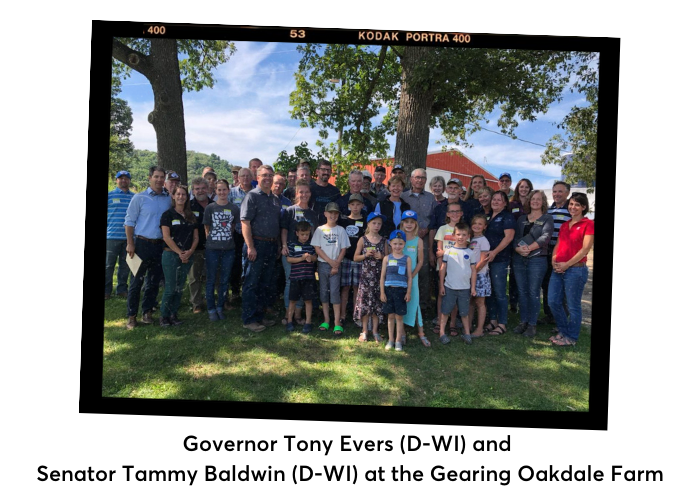 In today’s politically charged environment engaging in public policy seems more like a contact sport than an exercise in civic dialogue. I’ve done it; you’ve done it – turned off the TV, changed the radio station, or avoided social media altogether because you’re exhausted and frustrated by the polarizing and fractured state of political affairs.
In today’s politically charged environment engaging in public policy seems more like a contact sport than an exercise in civic dialogue. I’ve done it; you’ve done it – turned off the TV, changed the radio station, or avoided social media altogether because you’re exhausted and frustrated by the polarizing and fractured state of political affairs.
At Organic Valley, we get it too. In phone calls, emails, and social media comments “….you lost me after working with Senator so-and-so on legislation;” and “USDA can never be trusted.” Even “…that group you co-signed a letter with or donated free product to doesn’t like farmers.”
These exchanges force us to examine: Is it worth it to be involved in the public policy arena?
Our answer is fixed both in our cooperative values and our economic reality, that as a national brand with thousands of member-owners and employees, not being involved makes our business vulnerable.
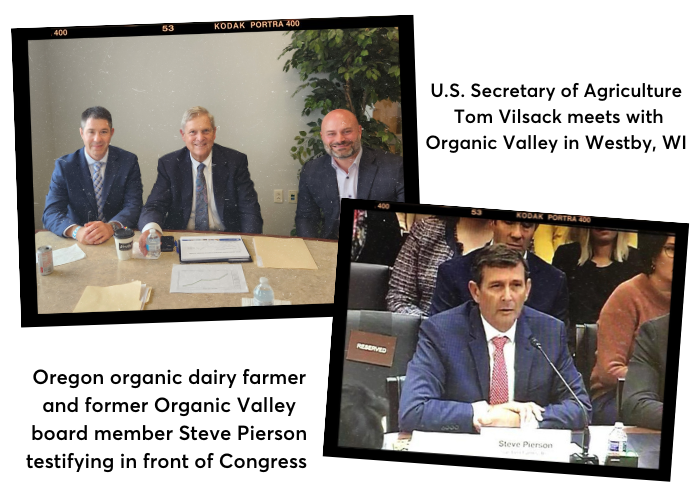 We need to know what’s coming at us in the marketplace and from the government. And we advocate for sound policy that will benefit our organic community of businesses, consumers, and farmers. Government relations is just another theater of power that businesses should not ignore – you might not need a big team, but you better have someone who wakes up every day thinking about how you succeed in this space.
We need to know what’s coming at us in the marketplace and from the government. And we advocate for sound policy that will benefit our organic community of businesses, consumers, and farmers. Government relations is just another theater of power that businesses should not ignore – you might not need a big team, but you better have someone who wakes up every day thinking about how you succeed in this space.
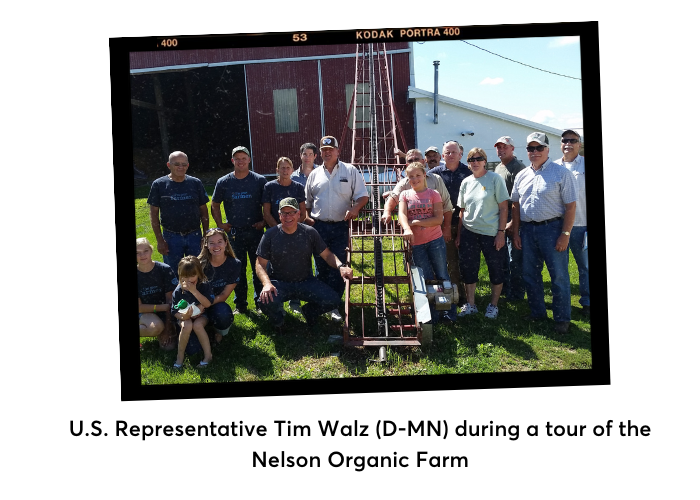 With the next Farm Bill under development, USDA rulemaking for dairy pricing and organic coming forward, and a new stable of political leadership in 2025, these are the basic tenets that ground Organic Valley’s work and can help inform how others might approach food and farm policy:
With the next Farm Bill under development, USDA rulemaking for dairy pricing and organic coming forward, and a new stable of political leadership in 2025, these are the basic tenets that ground Organic Valley’s work and can help inform how others might approach food and farm policy:
- Organic is primary. Protecting and advancing organic agriculture and integrity is our top priority. The business and our member-owners are certified organic, and that is where our focus – predominately at the federal level – needs to be.
- Remain non-partisan. We need to work with representatives across the political spectrum. The very fact that our elected officials both vote on agricultural policy and belong to political parties (and run for office) means that if we want to influence farm and food policy, we need to work with people who have political views on any number of issues.
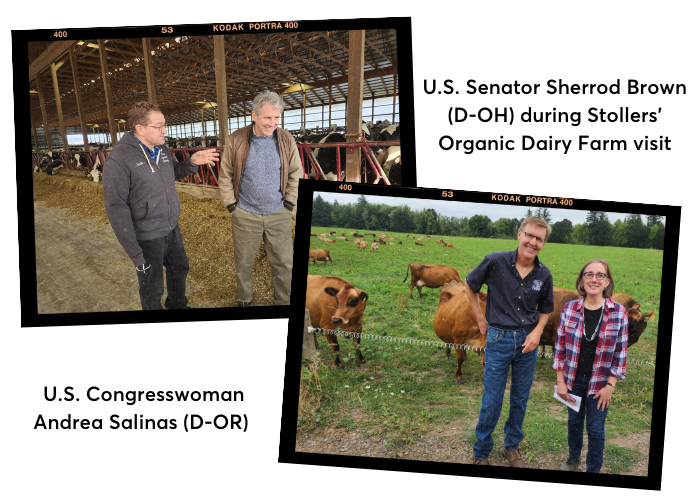 Maintain a separation from elections. Our co-op will not endorse candidates or political platforms for elected office. Organic Valley supports the U.S. system of democracy, and along with that, civic engagement where member-owners and employees are empowered to express support for any candidate they see fit and who represents their own personal preference, but they need to do it on their own time. As a business, it remains imperative that we avoid both the perception and reality of providing any preference for candidates in an election.
Maintain a separation from elections. Our co-op will not endorse candidates or political platforms for elected office. Organic Valley supports the U.S. system of democracy, and along with that, civic engagement where member-owners and employees are empowered to express support for any candidate they see fit and who represents their own personal preference, but they need to do it on their own time. As a business, it remains imperative that we avoid both the perception and reality of providing any preference for candidates in an election. - Span beyond organic. All our businesses are more than food companies. For us, that means finding our cooperative trade spirit or elevating healthy dairy or even taking a stand on environmental policy and issues that matter to consumers and farmers. Organic has changed the world, but we as an organization and as farmers showing up in more places create more, not less, opportunities.
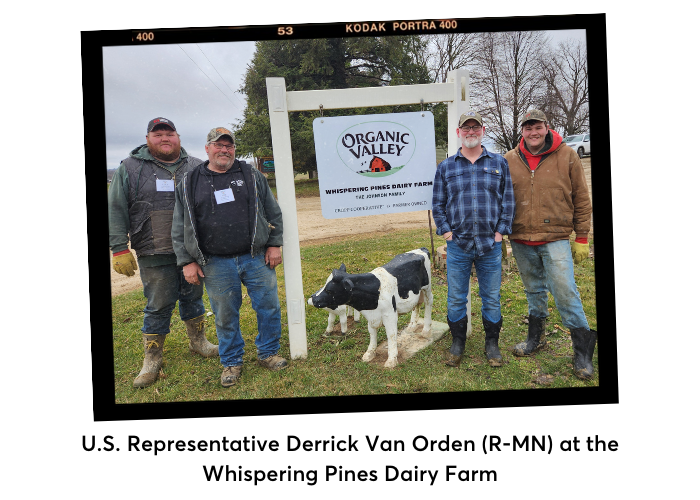 Lean in: As companies look to build their government affairs capacity and seek to advance a collective interest in a topic/bill, the reality is you can’t do it alone.
Lean in: As companies look to build their government affairs capacity and seek to advance a collective interest in a topic/bill, the reality is you can’t do it alone.
In my experience leaning into your trade associations is a necessity. It gives you a space to test out ideas, to tap the knowledge and expertise of staff, and it provides grounding in what’s relevant in the here and now with policymakers. And perhaps most importantly it is a place to build industry cohesion around a topic and campaign efforts.
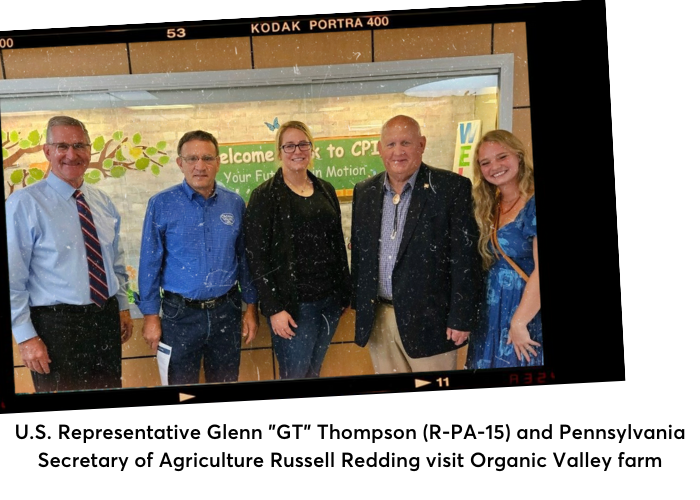 For Organic Valley, the Organic Trade Association represents that trusted anchor point, it’s where we commit our greater attention and resources to protect and grow the organic movement. As with anything in life, so too is a trade community, you get out what you put in.
For Organic Valley, the Organic Trade Association represents that trusted anchor point, it’s where we commit our greater attention and resources to protect and grow the organic movement. As with anything in life, so too is a trade community, you get out what you put in.
I urge OTA members to join community task forces, councils and events, and meetings. My experience is the Trade wants to embrace companies and individuals ready to take action and who have an understanding that this is both a short and long game of work.
Don’t let the day-to-day noise distract or dissuade you from defining a role in public policy. Yes, it will take time and attention but it can pay dividends in helping your business plan and respond to the world that is ever changing.
